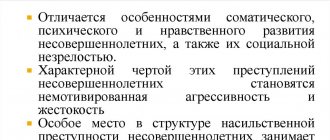Every citizen of the country must understand that for normal civilized living it is necessary to follow certain rules of behavior and be responsible for their actions. If a person commits a crime, it will be discovered and punished. This is an inevitable phenomenon, which allows us to say that every person in the country is protected by the state, or more precisely, by executive bodies such as the police. In order for the perpetrator to be held accountable for the crime committed, it is necessary to initially create an evidence base that will undoubtedly confirm the fact of his guilt or innocence.
One of the crimes is significant damage under the Criminal Code of the Russian Federation, which was caused to the other party. The criminal action consists of causing significant material damage to the injured party. This act is qualified by Art. 167 of the Criminal Code of the Russian Federation.
Amount of damage for initiating a criminal case
Theft amount to initiate a criminal case 2018
What is the amount of theft to initiate a criminal case?
Thus, there will be no criminal liability for simple forms of fraud, theft, embezzlement or misappropriation of someone else’s property in the amount of less than 5 thousand rubles.
Legislators will replace it with an administrative one.
However, criminal liability will be established for petty theft or embezzlement committed repeatedly.
At the same time, repeated means theft committed repeatedly within a year in the amount of 1 thousand to 5 thousand rubles.
Minimum amount to initiate a criminal case
Theft of someone else's property is considered petty if the value of the stolen property does not exceed one minimum wage established by the legislation of the Russian Federation.
try to resolve the issue with the victim and the police so that it does not lead to the initiation of a criminal case.
Evaluate the lawyer's answer: This amount should not exceed 1000 rubles.
Amount of damage for initiating a criminal case
The amount of minimum damage caused to initiate a criminal case
“Less than a percentage of those under investigation are hiding, so there is no need to be afraid of releasing them on bail.
And there is no point in keeping those accused of economic crimes in jail at all. The maximum bail in criminal cases for serious and especially serious crimes is proposed to be set at 30 million rubles.
A list of amounts and definitions of the concepts “major damage”, “significant damage”, “especially large” are in Section VIII “Crimes in the Economic Sphere”, but specifically in Chapter.
Amount of damage to initiate a criminal case 2022 in Russia
At the same time, repeated means theft committed repeatedly within a year in the amount of 1 thousand to 5 thousand rubles.
158 of the Criminal Code of the Russian Federation follows from the notes to Art. 7.27 of the Code of Administrative Offenses of the Russian Federation, which provides for liability for petty theft as an administrative offense.
The note sounds like this: “Note. Theft of someone else's property is considered petty if the value of the stolen property does not exceed one thousand rubles.
“Thus, up to 1,000 rubles is an administrative offense, over a criminal offense. As a result, the door was damaged.
I really need to find out. What is the minimum amount of damage to initiate a criminal case under Art. 158 and Art. 165 of the Criminal Code of the Russian Federation? Is it possible to get by with a fine under the Code of Administrative Offenses for petty theft and what will be its amount?
December 26, 07:14, question No. 33682 Igor,
Novosibirsk And my friend too.
Answer the question. 1) What is the minimum amount of damage when filing a statement with the police in case of fraud? Article 140.
Reasons and grounds for initiating a criminal case.
Criminal Code, Art. 167
In order to understand what we are talking about, let’s consider what the article of the Criminal Code says about the subject of the crime. What is significant damage under the Criminal Code of the Russian Federation?
The subject of the crime is the property of the other party (the defendant), the damage to which was, in fact, caused. That is, significant damage can be called not only the destruction, but also damage to the property of another citizen.
The subject of the crime must have a marketable value, that is, a price that can be determined by an objective method. As for the conditions under which the crime was committed, they also matter. In the modern world, we increasingly hear about terrorist acts and vandalism; for these conditions, other relevant articles of the criminal code are defined, which provide for a completely different punishment.
In order to have a clear distinction between the destruction of property and its damage, let us consider what the Criminal Code defines as the destruction of property and its damage.
What punishment awaits the thief?
When choosing a punishment for theft, all the nuances are taken into account:
- Amount of theft: petty crime, large crime, especially large crime. Thus, the latter includes only theft in the amount of more than 1 million rubles.
- Number of culprits: one person or group.
- Individual circumstances: whether the crime was planned, whether someone was injured during the commission of the crime, whether the criminal surrendered voluntarily.
Depending on the severity of the offense, the perpetrator may face a fine, correctional labor, imprisonment for up to 10 years, as well as deprivation of titles and awards if an official is guilty. The presence of a criminal offense can hardly be called a special achievement that is worth being proud of.
This is interesting! Execution: order and timing
Unlike the administrative one, it significantly affects the life of a citizen, even if everything ends with a fine. The tightening of the law has led to the fact that even a seemingly insignificant theft can become a reason for legal proceedings.
When theft is not considered a crime, watch the lawyer's comments in the following video:
Cases when you can avoid punishment
In 2016, a new version of the Criminal Code of the Russian Federation was adopted, which determined the special status of violators who compensated for damage before the start of prosecution in a criminal case.
The peculiarities of the situation of such persons are provided for in Art. 76.1 of the Criminal Code of the Russian Federation as amended on July 3, 2016. This article allows for the possibility of exemption from liability for criminal offenses in the field of taxation if the offender compensates the state for the amount of damage caused.
Part 2 Art. 76.1 of the Criminal Code of the Russian Federation reveals the conditions for release from liability if the offender has made amends for the harm caused before the initiation of the case.
The changes made in 2016 provide a chance to release a person from criminal liability in the presence of a set of the following circumstances:
- the criminal act was committed by this person for the first time;
- the culprit fully compensated for the damage caused to another citizen, legal entity, or state;
- the criminal transferred to the budget an amount equivalent to the cost of damage twice as much;
- the committed act falls under Part 2 of Art. 76.1 of the Criminal Code of the Russian Federation (it contains references to specific crimes provided for by the Code).
Thus, the legislator assumes that a first-time violation may be the result of a mistake or delusion, so the state seems to forgive the offender for such an act. The result is the release of the offender from criminal liability, which will entail the absence of a criminal record and other unpleasant consequences (for example, the need to constantly visit government agencies and courts).
Important! Reconciliation of the parties is possible in the event of a crime of minor or medium gravity, which covers only the first 2 parts of Art. 158 of the Criminal Code of the Russian Federation. In other cases, the violator will be held accountable under the Criminal Code of the Russian Federation.
List of types of compensation for damage caused by a crime (Article 1082 of the Civil Code of the Russian Federation):
- Compensation in kind, i.e. return or replacement of the victim's property damaged or destroyed as a result of the crime. It must be of the same quality, purpose and correspond to the cost of the original item.
- Full reimbursement of expenses incurred by victims to restore their property or lost rights.
- Compensation for lost income that the injured party would have received if the crime had not been committed.
Which law enforcement agencies should you contact in case of fraud?
If a person has become a victim of fraud, then you should immediately contact the following government agencies:
- Police. This government agency will be responsible for identifying violators, as well as searching for and capturing them. This body will prove the criminal’s involvement in this or that fraud.
- Prosecutor's office. It will connect if the process suddenly reaches a dead end. The prosecutor's office will assist the police by all means in exposing the criminals.
- Court. Here the process of exposing and assigning a term or fine for the offense committed is carried out.
It is worth remembering that a fine is issued only if the person has not committed major fraud.
How to prove the fact of fraud and the involvement of the perpetrators
Questions arise: fraud on trust, how to prove it? How to prove fraud using a receipt? How to properly prove fraud without a receipt? How to properly prove intent in fraud?
First you need to try to come to an agreement peacefully, and not run to contact law enforcement agencies. In most cases, debtors ask for a deferment; in this situation, you will be able to reach an agreement. When the debtor does not make contact, you should contact the relevant authorities.
If the fraudulent borrower is not hiding, then communication with him can be recorded on audio or video. In it, the suspect must clearly articulate that he actually committed any actions against you.
During the conversation the following phrases should be spoken:
- Amount of debt.
- The purpose to which the borrower is subordinate.
- Deadline for returning money.
The more information is reflected in the recorded conversation, the easier it will be for law enforcement agencies to prove the fact of a crime. This issue most often becomes difficult due to the fact that victims of scammers are not prepared for such an outcome of events and do not leave the necessary evidence that could prove the crime.
Most often, scammers rely on the victim’s fear and take advantage of this situation. The attackers understand perfectly well that the victim is not ready for such turns of events and brazenly carry out their machinations.
In order to prove a crime, you need to collect evidence.
Article 74 lists what information may be evidence:
- Testimony of a suspected person. No one is obliged to testify against themselves. But confessions may appear if you want to reduce your sentence, since a sincere confession provides many advantages.
- Testimony from a victim of fraud. Victims of deception by unscrupulous people should think in advance about how the facts that relate to the crime committed against them will be presented. Words must coincide with real events.
- Physical evidence of fraud. These are, as a rule, funds that are directly related to the crime. They can be of different kinds: starting from any thing and ending with material means. Items such as a telephone, voice recorder, notepad, and receipt help the investigation.
It is easy to become a victim, but it is much more difficult to prove the involvement of one or another person. To win these types of cases, you need to use the help of a specialized lawyer, look for as much material evidence as possible, or entrust the case to the police.
Special rules for fraud
The Criminal Code of the Russian Federation contains special rules for establishing the amount of damage caused for certain elements of fraud provided for in Articles 159 (parts 5 to 7), 159.1, 159.3, 159.5, 159.6.
The article was approved by practicing lawyer, blog expert, Christina Shekina
In relation to these compounds, the amount of damage and the rules for calculating it differ from the general procedure described earlier. For these crimes, a significant amount of damage is estimated by criminal law at an amount of 10 thousand rubles, large - from 3 million rubles, especially large - from 12 million rubles.
Such a significant amount of damage is established by the legislator for initiating a criminal case due to the fact that the parties to the relationship are business entities (individual entrepreneurs or organizations).
All property and material assets of the enterprise are subject to reflection in accounting documents. If any things, objects, products or raw materials are not capitalized and registered, it will be almost impossible to prove their theft (for example, if an organization hides property or understates production volumes to reduce taxes).
It must be taken into account that for almost any property produced or acquired by an enterprise, the initial cost indicators are lost over time. This is due to its use, resulting in natural physical wear and tear. Depreciation indicators are recorded annually in accounting information and will be taken into account when calculating damage from theft.
What it is
Fraud, according to generally accepted rules, includes the taking of the property of a third party, his material benefits through deliberate distortion of the truth, abuse of trust, withholding details from him, transferring information to him incompletely, and fraudulent actions against him with selfish goals.
Legislative acts classify fraud as a crime that has varying degrees of severity depending on the cost of the damage caused, including moral damage in cases of an offense consisting of the criminal use by the fraudster of his capabilities in relation to the trust of a third party.
Fraudsters deceive people using a variety of methods, committing them orally, in writing, or may involve performing any action. For example, he sends a written message in the form of SMS or forges documents, objects of transactions. Gambling specialists use cheating techniques, accompanying them with verbal deception. Many of the scammers abuse the trust and responsiveness of people, which they cleverly combine with fiction about non-existent stories.
Article of the law
According to the newly introduced amendments to legislative acts, Article 159 of the Criminal Code of the Russian Federation called “Fraud” has been added. It includes six subsections designated 159.1-159.6, where the component parts of the rule of law are structured in more detail from the point of view of legal significance.
In accordance with it, penalties have been changed for:
- dishonest practices committed in the lending sector;
- receiving any payments,
- fraudulent actions carried out with payment cards,
- scams committed in investment activities,
- manipulations carried out in the insurance sector;
- fraud in computer information.
It should be noted that the measures taken do not provide for increased penalties for committing any type of fraud. They detail various types of actions aimed at appropriating someone else's property through deception and abuse of trust of Russian citizens.
Punishment for petty fraud
Many Russian citizens are interested in the question: “if an act is committed using money, then to what amount is considered petty fraud, what will happen for this?”
According to the requirements of legal acts, petty fraud includes fraud whose cost of damage is no more than 1.5 million rubles.
Punishment generally depends on several factors, including mitigating circumstances, such as a primary or secondary conviction for a fraud offense. https://www.youtube.com/embed/7c6xexfkubo
The verdict is passed by the court, which may have the following content:
- imposing a penalty;
- establishment of compulsory work for a period of up to 480 hours;
- involvement in correctional labor for up to two years;
- restriction of freedom for a period of up to one year or without it with simultaneous performance of forced labor for a period of up to 5 years;
- imprisonment for a term of up to 5 years with or without its limitation to a year.
According to current legislation, for committing petty fraud in the field of business activity, the guilty person is sentenced by the court to imprisonment with up to one year of imprisonment. The penalty for committing petty fraud is set at up to 500 thousand rubles, the amount of which depends on the severity of the crime. This provision is enshrined in the latest amendments made to the Criminal Code of the Federation in 2012.
Compensation for damages before a court decision is made
In some situations, described in Article 76.1 of the Criminal Code of the Russian Federation, exemption from criminal liability is allowed if the guilty person has paid all the damage suffered by the injured party before the trial. This mainly concerns crimes in the economic sphere. To avoid criminal liability, several rules must be followed:
- the crime was committed for the first time;
- the crime belongs to a special list of economic crimes (mainly related to tax fraud);
- the damage is compensated in full (whether the injured party is an individual, organization or state);
- double the amount of damage caused was paid to the state budget (until 2016 it was necessary to pay five times the amount of damage).
If a person who committed a crime against private property or violated the law in the course of his economic activity, but while serving his sentence, the law was changed in the direction of mitigation, then he has the right to file a petition with the court for complete release from the punishment or for its reduction. That is, in this case the law has retroactive effect (the so-called decriminalization of the crime).
Submitting a statement from the victim
The application can be submitted either in writing or orally. In the second case, a procedure is provided for registration through a protocol, which contains information about the victim and from documents proving his identity. He is also warned of criminal liability in case of false denunciation.
Important! The fact of fraudulent activity, recorded in writing, is submitted to the police at the place where the act was committed. If the duty officer refuses to accept the application, the applicant has the right to contact the prosecutor's office
But for the document to be accepted, it must be executed correctly. You can use a sample for this.
It is accompanied by evidence that a scam took place. These include counterfeit papers, receipts, checks, documents kept by the accounting department, etc.
The prosecutor's office is obliged to verify these facts within 3 days. Then a decision is made to initiate criminal proceedings or to refuse them. Sometimes this period increases to ten days. If the initiation of the case is refused, the applicant is sent a decision on this. The latter has the right to appeal this decision in court or send an application to a higher authority. If a case was initiated and then collapsed or was refused, proceedings may subsequently be resumed if there are sufficient grounds for this.
Article 158 of the Criminal Code of the Russian Federation theft. comments from a federal judge MIP legal group
Important
Today (April 27) in the morning I was invited by telephone to see the judge for a conversation. In this conversation, the judge invited me to agree to have our car repaired by the suspect after the warranty period expired (after May 24). Compensation for material damage Civil legislation protects the property of all persons located on the territory of Russia.
Material harm includes not only damage to a citizen’s property, but also deterioration of its condition, a decrease in the profit previously brought by this property and other changes for the worse regarding material benefits. Concepts and classification - what is it? The concept of causing property damage means material or economic deterioration of the property of one person as a result of the unlawful actions of another person.
Example from judicial practice No. 1
Previously convicted citizen N., unemployed, abusing alcoholic beverages, committed open theft of someone else's property.
Having seen a large bright package in the supermarket, the attacker brought it closer to the exit. Seizing the moment when the guard switched his attention, the intruder took the package out of the store.
The security guard reacted in time and detained the criminal on the street, after which he called the police.
Initially, based on witness testimony and other circumstances of the case, the unlawful act was classified as robbery.
However, during the judicial investigation, the classification of the offense was changed to attempted robbery, and the attacker was charged with responsibility for an unfinished crime. This was done as a result of assessing the contents of a stolen package, which contained a children's insulated blanket worth 700 rubles.
The culprit confirmed that he had no intention of stealing the blanket. He was mistaken in thinking that the package contained something more valuable.
At the same time, since citizen N. had previously committed similar acts, the change in the crime did not lead to significant improvements in the situation of the convicted person: he was imprisoned for a period of 1 year and 6 months.
In what cases do the dimensions of the crime differ from the standard ones?
As stated above, fraud can be committed with different amounts of damage
Establishing its amount is very important in order to choose the right sanction for the criminal. The amount of damage is determined in the note to Art.
158 of the Criminal Law. It describes all the standard “amounts” for determining the amount of damage. But there are exceptions to these rules:
- Part 5. It refers to the deliberate failure to fulfill the terms of the contract. But not everyone, but only those that were formalized on some commercial issue by business entities. Moreover, significant damage must be caused, which, according to the note to this article, must amount to 10,000 rubles. You can get into famous places for up to 5 years.
- Part 6 art. 159 of the Criminal Code. This part of the article defines liability for a similar act committed on a large scale. Again, we are not talking about the “generally accepted” amount of over 250 thousand. So that the fraudster can be brought to justice under Part 6 of Art. 159 of the Criminal Code of the Russian Federation, the amount of the stolen goods must be estimated at at least 3 million. The convicted person can receive a term of up to 6 years with a fine of up to 80 thousand rubles.
- Part 7 art.
159 of the Criminal Code of the Russian Federation. Again, we are talking about deliberate failure to fulfill the terms of an agreement concluded between business entities, if the act was committed on a particularly large scale. In this case, the note determines that it does not amount to more than 1 million rubles, but 12 times more. – from 12 million. The court has the right to sentence a person to a serious term of up to 10 years. - Part 3 art. 159.1 of the Criminal Code of the Russian Federation. It deals with the theft of finance by a borrower who provided the lender with data that does not correspond to reality, which resulted in theft on a large scale. A note to the article says that by large size we need to understand 1.5 million and above. The offender risks receiving up to 6 years in prison.
- Part 4. Establishes punishment for similar actions that entailed causing damage on an especially large scale. To be held accountable under this part of Art. 159.1 of the Criminal Code of the Russian Federation, it is necessary to steal at least 6 million rubles. There is a risk of receiving up to 10 years in prison and paying a serious fine.
- Part 3. We are talking about theft in the field of activity of insurers. What can the objective side be expressed in? Firstly, in deception regarding the occurrence of an insured event. Secondly, the introduction is misleading regarding the amount of payments due. If more than 1.5 million rubles are stolen in this way, then the amount is considered large. You can get up to 6 years in prison.
- Part 4 art. 159.5 of the Criminal Code of the Russian Federation. If, as a result of criminal acts related to insurance relations, at least 6 million rubles were stolen, then the amount is considered especially large. The most severe sanction is up to 10 years in prison.
We talked in more detail about the terms of restriction and imprisonment for fraud under Article 159.
To summarize, we note that you can become a criminal if you commit fraud in the amount of 2,500 rubles or more. If the stolen property is valued at a lesser amount, the perpetrator will be held accountable as established in the Code of Administrative Offenses of the Russian Federation.
Meanwhile, if an offender prosecuted for fraud commits petty theft again, he risks being convicted of a criminal offense. You need to know about this, you need to remember this so as not to create unnecessary problems.
To solve your problem RIGHT NOW get a free LEGAL consultation Moscow
Conditions for qualifying violations
To determine whether the violation in question is recorded, let’s look at the signs that characterize this act. Here it is appropriate to be guided by the following typical criteria:
- use of violence or threats in case of robbery;
- secret theft of property during theft;
- recording of damage by the injured party;
- the criminal is driven by a selfish motive;
- the violation was committed intentionally.
If we are talking about fraud, for example, on the Internet, here the offense is determined by the motive, intent and purpose of the criminal. An attacker develops a fraudulent scheme to steal money from a victim. However, proof of such acts requires the presentation of convincing evidence of violation.
The condition for the onset of criminal punishment here is compliance with the above minimum value of the stolen property..
In addition, an important innovation in the legislation was the amendment to Art. 10 CC. Here, the developers of legal standards provided for the “decriminalization” of past violations and the mitigation of already imposed punishments.
New schemes
The development of modern technologies makes it possible for fraudsters to master new forms of fraud, which have become widespread not only in our country, but throughout the world, despite the cybersecurity measures taken.
The tools used to commit fraudulent actions include:
- Internet
. It is used in connection with reducing to zero the possibility of catching offenders committing virtual acts. - Cellular
. It is no less widespread. Despite the fact that SIM cards are sold using a passport.
The most popular methods of small-scale fraud on the Internet include raising funds for the treatment of a seriously ill child or adult. Some of the scammers offer to invest money in a joint business that will supposedly generate high income.
No less popular is deception on the Internet, when swindlers act on behalf of certain companies, offering to purchase their shares at an attractive price. Then they disappear without a trace on the Internet after receiving funds. Mobile communications can also disappoint with loss of funds. For example, a scammer persuades him to top up his cell phone account, indicating some reason:
- make an advance payment for any service;
- taking part in the promotion, for this he asks to send him a replenishment code;
- etc.
Many scammers offer the services of astrologers, palmists, fortune tellers, and healers. They skillfully use people’s desires to escape from life’s problems, family troubles and all kinds of illnesses. In fact, fraud in this area cannot be justified by criminal law. Moreover, this type of scam is common both in a real meeting with a deceiver and on the Internet.
Example from judicial practice No. 2
Brothers M.V. and I.V., having entered the farm at night, tied up the watchman and slaughtered the bull. Having cut the carcass into pieces, the attackers took it with them. In the morning, farm workers freed the bound guard.
The watchman said that he did not resist because the criminals had an ax and a knife. Although the culprits were exposed quickly enough, they continued to deny their guilt. As a result, they admitted to their crime and explained that they committed the crime due to unemployment and difficult financial situation. Regarding the ax and knife, the brothers explained that they intended to use these tools for slaughtering a steer, and not as weapons.
The court considered their arguments justified, and therefore they were prosecuted for robbery, not banditry. The punishment was 2 years in prison.
As evidenced by extensive practice, robberies have a number of common features: a selfish motive, impudence, and sometimes aggressiveness.
How is damage determined?
The amount of material damage that needs to be known to open a criminal case in the Russian Federation is determined from the value of the stolen property at the time the crime was committed. If the value of a particular property is currently unknown (it is rare or no longer exists for sale), an expert is invited. Based on his conclusion, the cost of things that carry some value will be determined.
If the perpetrator wishes to compensate for the damage, then the amount of compensation will be equal to the value of the property at the time of the decision to compensate for the damage, and not at the time of the theft. In this case, indexation is provided at the time of execution. For example, if the perpetrator wanted to compensate for damage in March, but began to compensate for it in September, and the value of the item that was being assessed has increased, then a certain percentage will be added to the amount to be compensated.
There is a separate procedure for assessing things that carry historical, scientific or artistic value. Evaluation consists not only in determining the monetary equivalent, but also in determining the significance of a particular thing for science, culture and, accordingly, for society. An expert assessment can be carried out by either a state expert or a private appraiser for an additional fee.
Now you know at what amount of theft criminal liability arises, and what liability each type of damage entails. Knowledge of this area of law will allow you to predict the actions of law enforcement officers if you are guilty of violating the law or will help you monitor their work if you are the victim in the case.
Liability for legal damage. face and physical face
Significant damage to organizations and individuals has completely different monetary expressions. As a rule, for the former it is established in a larger amount than for the latter, which means that the preventive measures will be established completely different.
Much depends on the type of offense itself, as well as its other qualifying characteristics . This directly affects the type and size of the punishment that will be chosen by the court. It is indicated in the resolution as a result of investigative actions, as well as judicial proceedings.
If significant damage is caused, a criminal case is opened.
Let us consider separately what types of punishments will be imposed on ordinary citizens and organizations.
Preventive measures for individuals persons
Significant damage to a citizen often occurs as a result of certain types of theft. For example, this could be Art. 158 or 167 of the Criminal Code of the Russian Federation. According to them, a person can be sentenced to:
- payment of a fine;
- one of the types of work (corrective, compulsory or forced);
- arrest;
- imprisonment.
The easiest of them is payment of a fine, and the most severe is imprisonment in a colony.
The judge chooses a specific preventive measure, taking into account all the circumstances that accompanied the incident.
Preventive measures for legal entities. persons
For organizations and companies, any of the previously listed preventive measures can be determined using such additional sanctions as:
- prohibition to hold certain positions or carry out certain types of activities;
- restriction of citizen's movements.
As is known, the legal entity itself as a whole is not brought to criminal liability, but only those persons who perform managerial or organizational functions in the organization. These include the CEO, director, etc.
Circumstances influencing the sentence (aggravating/mitigating)
Almost every crime has its own aggravating and mitigating circumstances, in which the court chooses various forms of preventive measures for different time periods. What factors can positively influence the court's decision on the chosen punishment, and which - negatively?
When sentencing, taking into account significant damage, aggravating and mitigating circumstances of the incident are also taken into account.
Aggravating circumstances
These include a large number of different factors, based on which the court will most likely impose a more severe punishment on the perpetrator of the incident. They may be:
- committing an offense as part of a group with a premeditated plan;
- if it was committed by a person who abused his official position or took advantage of some of his work privileges;
- in cases where it is committed against the most vulnerable members of society (pregnant women, young children, old people);
- if the crime was carried out with particular cruelty or torture to the victim;
- when using weapons, explosive or chemical substances, etc.
Extenuating circumstances
This complex includes various factors in which the court is ready to meet the defendant halfway and assign him a mitigated form of preventive measure or reduce the term of serving the sentence. Among them are:
- failure by a citizen to reach the required age limit;
- presence of small children;
- the offense occurred because the offender was in a difficult life situation;
- the offender cooperated with the investigation and also provided active assistance in establishing the truth;
- he provided medical assistance to the victim or he himself decided to compensate for the damage caused by him in the form and amount as determined by the latter, etc.
Methods of fraud that are most often encountered in life
Each of us encounters fraud or attempts to commit it in our lives almost every day. Let's talk about the most common methods:
Electronic fraud
Everyone receives various letters and SMS sent to email and phone containing offers of a profitable purchase, requests for help, invitations to an attractive business, etc. Sometimes such messages come from relatives and friends.
In this case, the information should be double-checked through other communication channels. Criminals often hack into accounts and send requests for help to everyone in their address book. In another option, letters are simply sent out in bulk, for example: “Mom, I’m in trouble.” Criminals wait for those who respond and try to deceive them. Call your friends and relatives back, make sure that they really have a difficult situation.
Also check through other channels all messages supposedly coming from banks, providers, etc. Fraudsters send mass messages, for example, that your card will be blocked. They contain an algorithm of actions that will help you avoid trouble. Usually it is suggested to call or send SMS to the specified number. These numbers are paid numbers and the criminals will get everything they wanted as soon as their instructions are followed.
Another type of email fraud is phishing. This is the collection of personal data online. Attackers are interested in everything: scans of documents, social logins and passwords. networks, bank card numbers and codes, etc. In the future, they either use the data themselves in fraudulent schemes or sell it. Think carefully about whether to provide personal information. Do not share bank card and payment system codes with anyone, even if the person contacting you introduces himself as a bank employee.
Note!
Any online lucrative offer that requires upfront payment or investment should be considered fraudulent. The more lucrative the offer, the more likely it is to come from a criminal.
Various "scams"
The heyday of street lotteries and other similar events to steal money from gullible and naive people are over. However, they may still come your way. Never gamble with strangers and try not to make any transactions with them. Even if you are offered to start the game for free or organize a playful bet.
Card games
Criminals identify gambling people who have money and involve them in the game. Sometimes losses are catastrophic. You should adhere to the rule that you should not play cards for money with strangers, otherwise you may end up with zero.
Various options for suggestion and hypnosis
Often this type of fraud is carried out by various kinds of fortune tellers, psychics and healers. They identify the suggestible person, intimidate him with certain troubles and offer to get rid of them by performing certain actions. For example, they may offer to give them a wallet for a while, since the person from whom the damage is being removed should not have money on him.
Never contact such charlatans. If they pester you on the street, just walk past without making contact.
Contract fraud
The methods of crime described above are non-contractual. In case of contractual fraud, a certain civil transaction is made. This could be any agreement from selling a pen to buying an apartment. In any case, the criminal does not plan in advance to fulfill his obligations in whole or in part. His task is to obtain the victim’s funds without providing anything in return, or to provide something completely different from what was promised. For example, they may show you a luxurious mansion, and under the contract you will receive a barn on the outskirts.
It is with contractual fraud that the size of thefts is usually the largest. All transactions involving significant amounts must be accompanied by lawyers, starting from the moment of preliminary negotiations.
What you need to know about the investigation
The preliminary investigation begins from the moment the criminal case is initiated. This is a complex crime, the fact of which is extremely difficult to prove. Therefore, detectives will most likely need much more time.
The duration of the investigation is:
- minimum – two months;
- maximum – one year from the date of initiation.
Further extensions are only possible under exceptional circumstances. Each time, changing the deadline, the investigator will certainly notify the injured party about this.
You should not be indignant if the victim and witnesses are repeatedly invited for interrogations - this is necessary to clarify the data and identify new details. At the end of the process, the victim is offered to familiarize himself with all the materials included in the case.
The investigative officer may terminate the investigation and not refer the case to trial. A written notice of this is sent to the parties. They have the right to express disagreement and file a complaint with a higher investigative body, the prosecutor.
Responsibility
The article “Fraud” (Criminal Code of the Russian Federation) for one person establishes the following preventive measures:
- Fine. Its amount can be up to 120 thousand rubles. or be up to 12 times the minimum wage of the perpetrator.
- Forced labor. Their duration is up to 180 thousand hours.
- Arrest (up to 4 months).
- (up to 1 year).
- Imprisonment (up to 2 years).
Also, the article “Fraud” (Criminal Code of the Russian Federation) establishes liability for a group of persons who committed a crime. The following are used as preventive measures:
- A fine, the amount of which is up to 300 thousand rubles or equal to 24 labor salaries.
- Mandatory work (from 180 to 240 thousand hours).
- Imprisonment (up to 5 years).
- Correctional labor (up to 2 years).
Major fraud or crime committed through abuse of official position for personal gain is punishable by imprisonment. The period can be up to 6 years with a penalty of up to 10,000 rubles. or in the amount of wages or other income of the convicted person for a period of up to one month or without it. There is also a fine for such fraud. The amount of penalties is from 100 to 500 thousand rubles. or 12-36 labor salaries. A crime that was committed by an organized group or caused great damage as a result of it is punishable by imprisonment for up to ten years with a fine of up to one million rubles or 36 times the monthly salary or without the imposition of sanctions.
Abuse of repairs
Member of the Moscow Administration Council Konstantin Rivkin recalls that the Supreme Court has already addressed similar issues in the resolution of the Plenum on cases of abuse of official powers and exceeding official powers. Then he distinguished between abuse of power and malfeasance. The draft new resolution, according to Rivkin, “in more detail and meaningfully” explains what these compounds are.
Thus, abuse of authority (Article 201 of the Criminal Code) and abuse of authority in the execution of a state defense order (Article 201.1 of the Criminal Code) should be understood as “the commission by a person performing managerial functions in a commercial or other organization of such acts that, although they were directly related to the exercise by him of his rights and obligations, but were not caused by official necessity and objectively contradicted the legitimate interests of this commercial or other organization, as well as the goals and objectives for which this person was vested with the appropriate powers.”
Rivkin points out that the Supreme Court “as a guideline” gave examples of those cases when a person “commits actions within the scope of his powers in the absence of mandatory conditions or grounds for their commission” - if these actions entailed socially dangerous consequences. For example, it hires people who do not actually perform job duties. Or it exempts the organization’s employees from performing labor duties “with the assignment to repair an apartment or improve a home owned by the person himself or his relatives and friends.” Another option is that the criminal “makes a transaction in the absence of the necessary consent or subsequent approval of the collegial management body of the organization,” notes Konstantin Rivkin.
Crime Options
The list of varieties of the described criminal act is constantly expanding following the development of social relations. New methods using technical means, as well as economic schemes, appear periodically. Some important elements of crimes are fixed in separate articles of the code.
Today, the most common frauds are:
- Street, household, including marriage.
- With telephone connection and cellular message.
- During the construction and sale of housing.
- Failure to fulfill contractual obligations in business.
- With loans.
- Receiving illegal payments.
- Using bank cards.
- In insurance.
- On the Internet and related to hacking computer databases.
All of them can be combined.
Thefts committed on the Internet
In this area, you most often encounter theft of funds from bank accounts and cards. The difference between thefts via the Internet is that they are usually closely related to another element - fraud.
If the criminal simply hacked into a bank account, then this will be regarded as theft. However, if he got to the victim’s card or account as a result of the latter’s deception, such an act will be considered fraud.
It should be noted that the theft of funds from accounts or payment cards in accordance with criminal regulations is an aggravating circumstance, in any case entailing criminal prosecution. In this case, the size of the assigned amount does not matter.










